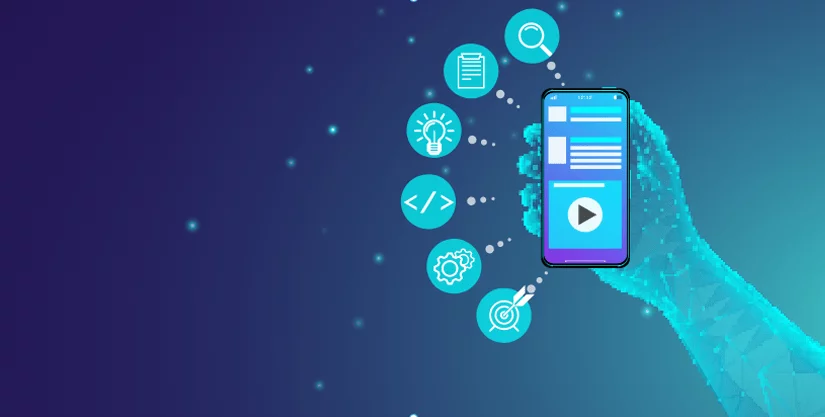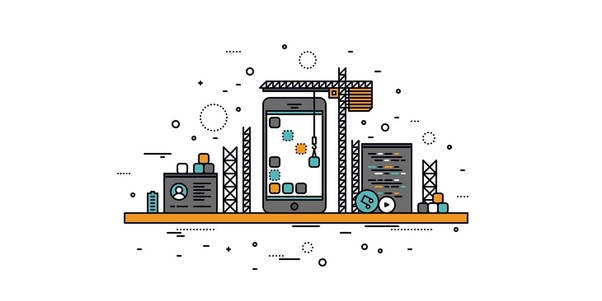
The Key Trends Shaping Mobile App Development in 2023
By Udit Agarwal

In the ever-evolving world of technology, mobile app development continues to be a dynamic and innovative field. As we enter 2023, several key trends are emerging that will profoundly shape the landscape of mobile app development. These trends not only influence the construction of apps but also redefine user experiences, open up new avenues for innovation, and address the ever-changing needs of users. Let’s explore the main trends poised to shape mobile app development in 2023.
5G Technology and Enhanced Connectivity:
The rollout of 5G networks is a game-changer in mobile app development. With its ultra-fast speeds and low latency, 5G enables developers to create apps that seamlessly handle data-intensive tasks, such as streaming high-quality videos and real-time multiplayer gaming. Enhanced connectivity paves the way for more immersive experiences, including augmented reality (AR) and virtual reality (VR) applications that rely on instant data transmission.
AI-Powered Personalization in Mobile App Development:
Artificial Intelligence (AI) transforms mobile apps into highly personalized experiences. AI algorithms analyze user behavior and preferences to deliver customized content, recommendations, and interactions. From chatbots offering real-time customer support to personalized shopping suggestions, AI-powered personalization enhances user engagement and satisfaction.
Voice and Gesture Control:
Voice assistants and gesture controls are becoming mainstream features in mobile apps. With voice recognition technology becoming more accurate, users can interact with apps through voice commands, enabling hands-free operations while driving or multitasking. Gesture controls like swipes and taps offer intuitive interactions, enhancing user convenience and accessibility.
Progressive Web Apps (PWAs):
Progressive Web Apps (PWAs) are gaining traction as they combine the best of both web and native apps. PWAs offer fast loading times, offline access, and push notifications through web browsers, eliminating users needing to download and install apps from app stores. This approach saves storage space and enhances user engagement.
Edge Computing and Edge AI:
Edge computing involves processing data closer to its source rather than in a centralized cloud server. This trend is gaining prominence as it reduces latency and enhances real-time capabilities, making it ideal for applications like IoT devices and AR/VR experiences. Combining edge computing with AI at the edge enables faster and more efficient data analysis for immediate insights.
Privacy-First Development:
Mobile app developers prioritize user privacy and security as data privacy concerns grow. Stricter data protection regulations like GDPR and CCPA have emphasized transparent data collection practices, secure authentication methods, and end-to-end encryption to ensure user information remains confidential.

Blockchain Integration:
Blockchain technology is finding applications in mobile app development, especially in the finance and supply chain management sectors. As blockchain ensures secure and transparent transactions, making it valuable for digital payment applications, identity verification, and data sharing.
Multi-Platform Development:
Developers increasingly adopt cross-platform frameworks like Flutter and React Native. These frameworks enable building apps on multiple platforms with a single codebase, reducing development time and costs while ensuring consistent user experiences.
Augmented Reality (AR) and Virtual Reality (VR) Applications:
AR and VR are revolutionizing industries ranging from entertainment to healthcare. Mobile apps incorporate AR and VR to provide users with immersive experiences, whether trying on virtual clothes before purchasing or training medical professionals through realistic simulations.
Also Read: The Key Steps to Building a Successful Mobile App: From Idea to Launch
App Modernization and Refactoring:
With the rapid pace of technological advancements, legacy apps often need help to keep up. App modernization involves refactoring existing apps to incorporate modern technologies, improve performance, enhance security, and provide a better user experience.
Summary
In conclusion, the trends shaping mobile app development in 2023 reflect a growing emphasis on enhanced user experiences, increased connectivity, and the integration of cutting-edge technologies. Developers continually seek ways to leverage AI, IoT, 5G, and more to create apps catering to users’ evolving needs and preferences. As these trends progress, the mobile app landscape will undoubtedly witness transformative innovations that redefine how we interact with technology.